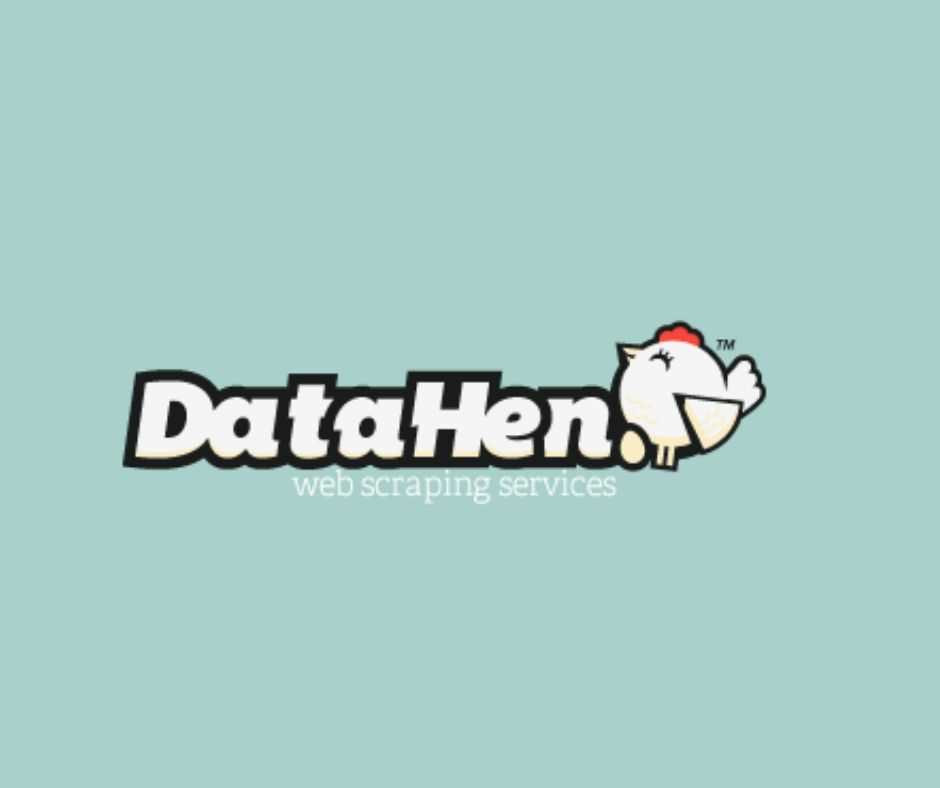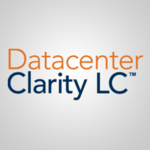Indeed, the majority of contemporary data management software is compatible with a variety of systems and devices. This is due to the fact that they are made to work with a wide range of mobile devices, including tablets and smartphones, as well as different operating systems, including Windows, Mac, and Linux. This feature makes it convenient and effective for both individuals and organizations by enabling users to access and manage their data from any location.
List of 20 Best Data Management Software
BindPlane - a observability solution that simplifies telemetry operations by integrating metrics, logs, and traces through a single agent. By leveraging BindPlane, data management becomes more efficient and cost-effective, with seamless cloud migrati...Read More BindPlane
Ataccamas Master Data Management platform is solution for SMEs, Enterprises, and Agencies. With advanced features like Process Management, Data Masking, Match & Merge, Relationship Mapping, and Data Governance, Ataccama simplifies and streamlines dat...Read More Ataccama
Atlan is a data platform designed to promote data democratization while ensuring robust data governance and security. Recognized as a Gartner Cool vendor for DataOps in 2020, Atlan revolutionizes data management within organizations, providing easy a...Read More Atlan
Synatic is a data integration and ETL platform that empowers businesses to stay ahead in the ever-changing data landscape. Leveraging a hybridized approach, Synatic effortlessly connects applications and data by extracting and transforming informatio...Read More Synatic
DQ Match, the advanced data deduplication software that streamlines data management by identifying and merging duplicate entries. With its powerful capabilities, DQ Match ensures data accuracy and creates a comprehensive customer database for informe...Read More DQ Match
SwifDoo PDF solution for all your PDF requirements. Our comprehensive software provides a range of innovative features that enable users to effortlessly remove restrictions such as copying, editing, printing, and annotating from their PDF files. With...Read More SwifDoo PDF
StoneFly Migrate is a data migration solution that is both efficient and budget-friendly. Seamlessly transfer large amounts of unstructured data, including NFS, CIFS, and SMB NAS, over LAN or WAN with the flexibility for scheduled or real-time replic...Read More StoneFly Migrate
TapClicks is a marketing platform used by both agencies and brands to simplify data collection and campaign management, enabling smarter decision making. With customizable reporting and seamless integration across various data sources, TapClicks is h...Read More TapClicks
Omni-Gen Data Management solution for master data management needs. Ideal for businesses of all sizes and government agencies, this powerful software provides a centralized platform to streamline processes, mask data, merge information, map relations...Read More Omni-Gen Data Management
Statice is a synthetic data technology, in collaboration with Anonos Data Embassy. Experience unmatched data privacy and security without compromising on data usability. Empower your business to effectively manage regulatory limitations and optimize...Read More Statice
Runecast Solutions Ltd. offers a unique software that enables IT Security and Operations teams worldwide to actively mitigate risks, maintain compliance with security regulations, increase operational efficiency, and ensure the reliability of critica...Read More Runecast
Kanerika Flip is a data operations platform powered by AI, uniquely crafted to optimize and expedite data transformation tasks for enterprises. With flexible deployment choices, economical pay-per-use model, and a user-friendly interface enabling eff...Read More Kanerika Flip
Total Phase is a software solution trusted for its outstanding performance across various applications. With its robust features and effortless compatibility, Total Phase provides reliable and efficient operations in various technical settings...Read More Total Phase
Obzervr - an industry-leading work order management software designed for asset-intensive businesses. This innovative platform leverages digital automation tools to streamline operations and increase productivity. With easy-to-use digital forms and s...Read More Obzervr
Insycle is customer data management tool that streamlines the process for businesses. With advanced features like deduplication, cleaning, and bulk updates, Insycle streamlines CRM database maintenance, resulting in increased efficiency and time savi...Read More Insycle
Mesosphere is a platform that simplifies and streamlines Kubernetes management for businesses. With its secure and fully automated solution, it enables faster deployment, improved agility, and cost-effective production environments across multiple cl...Read More Mesosphere
Neutrinos is a Low Code Application Development Platform that enables businesses to effortlessly navigate the ever-evolving digital landscape. Using advanced technologies, it is the perfect solution for enterprises seeking to achieve successful digit...Read More Neutrinos
Datahen is the leading web crawling, scraping, and data extraction service, designed to give businesses a competitive edge. Our comprehensive features allow you to effortlessly gather and manage data, leaving you free to focus on other aspects of you...Read More Datahen
Datacenter Clarity LC DCIM is asoftware revolutionizing the data center industry. This cutting-edge platform offers unprecedented insights and management abilities, enhancing operational effectiveness and streamlining resource allocation. Its advance...Read More Datacenter Clarity LC DCIM
software, NetApp Backup and Recovery, designed to streamline yA backup process. A innovative technology transfers only new or modified blocks during backup, saving time and minimizing network congestion. It also eliminates redundant data, resulting i...Read More NetApp Backup and Recovery
Learn More About Data Management Software
- What Is Data Management Software?
- What Are The Recent Trends In Data Management Software?
- Benefits Of Using Data Management Software
- Important Factors To Consider While Purchasing Data Management Software?
- What Are The Key Features To Look For In Data Management Software?
- Why Do Businesses Need Data Management Software?
- How Much Time Is Required To Implement Data Management Software?
- What Is The Level Of Customization Available In Data Management Software?
- Which Industries Can Benefit The Most From Data Management Software?
- Conclusion
What Is Data Management Software?
Businesses may efficiently and effectively organize, store, and retrieve their data with the help of data management software. It enables businesses to gather, handle, and evaluate enormous volumes of data from many sources, generating insightful information and promoting well-informed decision-making. All facets of data management, including storage, integration, quality, security, and accessibility, can be handled using this program.
The ability of data management software to combine data from various sources, both organized and unstructured, is one of its primary characteristics. This software makes data easier to access and analyze by combining data from multiple systems, including databases, spreadsheets, and cloud services, into a single, consistent view.
Data management software also offers a variety of storage solutions to handle the ever-increasing volume of data being generated. This gives companies choice in how they manage their data infrastructure and includes on-premise, cloud, and hybrid storage options. Data quality is another crucial component of data management software. To guarantee that data is correct, comprehensive, and consistent, this software incorporates procedures and tools.
Additionally, it enables data enrichment and purification, which lowers errors and increases data reliability. Any organization must prioritize security, and data management software provides strong security features to shield private information from unwanted access. To protect the privacy and integrity of data, it has features like audit trails, access controls, and encryption.
Additionally, data management software gives enterprises control over the collection, administration, and use of data by offering a variety of data governance features. This entails establishing data ownership, establishing data policies, and monitoring data ancestry. To sum up, data management software is a crucial tool for businesses trying to maximize the value of their data. It provides a consolidated platform for data management, accuracy assurance, and security threat prevention. Businesses may maximize the potential of their data and optimize their data management procedures by investing in this software.
What Are The Recent Trends In Data Management Software?
The amount and diversity of data that organizations create and use has significantly increased in recent years. Consequently, the need for effective and efficient data management software has increased dramatically. The most recent developments in data management software and their potential effects on your company's data management strategy will be covered in this buyer's guide.
1. Cloud-Based Solutions: The standard for handling and storing data is cloud computing. Cloud-based data management software, which provides scalability, flexibility, and cost-effectiveness, has become more popular as a result. The cloud has emerged as the perfect option for companies trying to optimize their data management procedures due to the constantly growing volume of data.
2. AI And Machine Learning: To automate processes like data integration, data governance, and data cleaning, data management software is now utilizing AI and ML. In addition to guaranteeing data accuracy, this helps firms save time and money. Data-driven decision-making and predictive insights are also made possible by the application of AI and ML.
3. Adoption Of Self-Service Analytics: Previously, IT personnel were largely responsible for data handling. However, business users can increasingly examine and interpret data without professional help thanks to the growth of self-service analytics solutions. Data management procedures are now faster and more efficient as a result of this trend.
4. Privacy And Security: Strong data security measures are now essential due to the rise in data breaches and the enforcement of more stringent data privacy laws. To safeguard sensitive data, data management software has consequently added sophisticated security features like data masking, access restriction, and encryption.
5. Integration Of LoT And Big Data: The way data is gathered and used has been completely transformed by the Internet of Things (IoT) and Big Data. Businesses can now take use of the promise of these technologies thanks to data management software that allows Big Data storage and analysis and integrates with IoT devices.
6. Emphasis On Data Governance: With the growing significance of data privacy and compliance, data governance has emerged as a primary issue for enterprises. To guarantee data integrity and regulatory compliance, data management software increasingly includes data governance features like data lineage, data quality, and data cataloging.
Benefits Of Using Data Management Software
A strong tool for enterprises, data management software aids in the organization, archiving, and analysis of enormous volumes of data. In the current digital era, where data is crucial for making wise business decisions, this software has grown in importance. The advantages of utilizing data management software and the reasons it need to be a primary concern for any firm will be discussed in this buyer's guide.
1. Data Management In One Place: The capacity of data management software to consolidate all of your data in one location is one of its primary benefits. No more dispersed databases or spreadsheets. All of your data can be kept in one place using this software, which makes managing and accessing it simpler. This enhances data consistency and accuracy while also saving time.
2. Enhanced Security Of Data: Cyberattacks and data breaches are now major concerns for companies of all kinds. You can put strong security measures in place to shield your data from unwanted access with data management software. To make sure that only people with permission may view or alter sensitive data, you can also specify user permissions and access levels.
3. Effective Data Interpretation: You can rapidly and effectively evaluate your data with data management software. To help you make data-driven decisions, you may create reports, charts, and graphs that show trends and patterns in your data. To find correlations and forecast future events, this program also provides sophisticated analytics techniques including data mining and predictive analytics.
4. Savings Of Time And Money: Data management by hand can be a labor-intensive and time-consuming operation. However, you may save a lot of time and money by automating numerous operations, such data entry and data purification, with data management software. Additionally, you can lower operating expenses and boost overall productivity by simplifying your data management procedures.
5. The Ability To Scale: Your data expands along with your business. Scalability is the ability of data management software to handle growing volumes of data without sacrificing functionality or performance. This guarantees that your data management system can adapt to the expanding needs of your company and its changing data requirements.
6. Regulations And Compliance: Businesses across a range of sectors, including healthcare and banking, are subject to stringent laws governing data storage and privacy. Data management software ensures that your data complies with laws and industry norms by providing features like audit logs and data encryption.
Important Factors To Consider While Purchasing Data Management Software?
For businesses of all sizes, data management software is an essential tool for efficiently storing, organizing, and using vast volumes of data. Selecting the best software for your needs is crucial given the ever-increasing volume and complexity of data. But choosing the best solution can be overwhelming due to the abundance of options on the market. We have listed the most important things to think about while buying data management software to assist you in this process.
1. Data Security: The ability of data management software to protect your data should be your top priority when purchasing it. Strong security measures like encryption and access controls should be included in the software to shield your data from outside threats. 2. Scalability: Your data will grow as your business expands, so it's critical to select software that can grow with your company's requirements. Verify if the program can manage high data volumes and evolve with your company's needs.
3. Data Integration: The majority of companies store data in a variety of forms and systems. As a result, selecting software that can easily interface with other platforms is crucial. This removes the need for manual data entry and guarantees that data can move freely between systems. 4. User-Friendly Interface: The adoption and efficient use of software depend heavily on its user-friendly interface. Even for non-technical people, look for software with an intuitive and simple interface.
5. Customization: A one-size-fits-all approach might not be effective because every company has different data management requirements. It is crucial to get software that is customizable so that it can be made to meet your unique needs.
6. Support And Maintenance: When making a purchase, it's important to take the software's support and maintenance services into account. To make sure the software operates easily and effectively, look for a vendor that provides dependable support and frequent upgrades.
7. Cost: The price of any purchase, including data management software, should be carefully considered. The initial cost of the software as well as any supplementary expenses for modification, support, and upkeep must be taken into account. Make sure the software's advantages for your company outweigh its cost.
8. Data Backup And Recovery: Data can be corrupted or lost due to accidents. As a result, it is essential to select software with a strong backup and recovery mechanism to guarantee the constant availability and security of your data.
9. Trial And Demo: It is advisable to try the software using a trial or demo version prior to making a final purchase. This enables you to test out the features and capabilities of the product and come to a better informed conclusion.
10. User Reviews And Suggestions: Lastly, conduct research and seek out reviews and suggestions from other companies that have made use of the program. This will help you make an informed choice by providing you with insightful information about its advantages and disadvantages.
What Are The Key Features To Look For In Data Management Software?
A strong tool for gathering, organizing, and using data to inform decisions and spur corporate expansion is data management software. The success of a business depends on selecting the appropriate data management software, but with so many alternatives, it can be difficult to choose the best fit. The following are the essential characteristics of data management software to assist you make your choice:
1. Data Integration: The capacity of data management software to integrate with several data sources is one of its most crucial characteristics. This covers cloud services, spreadsheets, databases, and more. To make sure your data is accurate and consistent, look for software that provides smooth data integration.
2. Data Cleaning And Deduplication: Data must be clear of duplicates and clean before it can be used efficiently. To get rid of mistakes and guarantee data quality, look for software with strong data cleansing and deduplication features.
3. Data Security: Your information is important and should always be safeguarded. To protect your data from online attacks or unintentional loss, look for data management software that has sophisticated security features like encryption, access limits, and frequent backups.
4. Data Visualization: Information is only valuable if it is simple to grasp and comprehend. To quickly display your data and obtain insights, look for software that provides data visualization capabilities like dashboards, graphs, and charts.
5. Data Governance: It's critical to have appropriate data governance in place as data gathering and utilization get more complicated. To ensure compliance and security, look for software that lets you create rules and policies for data management.
6. Scalability: Selecting software that can grow with your company is crucial because your data requirements will probably change over time. To satisfy your present and future data management requirements, look for software that provides adaptable and adjustable options.
7. User-Friendly Interface: Although managing data can be a challenging and technical activity, end users don't have to find it that way. Choose software with an interface that is easy to use and intuitive so that your staff can use it with ease.
Why Do Businesses Need Data Management Software?
A vital tool for companies of all sizes and sectors is data management software. It assists businesses in efficiently gathering, organizing, and analyzing their data, offering insightful information that promotes wise decision-making and enhances operations as a whole. Businesses simply cannot afford to overlook the significance of data management software in the data-driven world of today.
Improving the quality of data is one of the primary reasons why companies require data management software. Maintaining accuracy and consistency can become challenging due to the ever-increasing volume of data being generated and collected. By detecting and fixing mistakes, duplications, and inconsistencies, data management software makes sure that companies have accurate and dependable data to operate with.
Furthermore, data integration also heavily relies on data management software. Since most firms' data is dispersed over several systems, it can be difficult to obtain a comprehensive and cohesive picture. By combining data from multiple sources, data management software removes data silos and offers an integrated picture of the organization's data. Better analysis and decision-making are made possible in addition to time savings.
Data security is yet another important advantage of data management software. Businesses now place a high premium on protecting sensitive consumer and company data due to the rise in cybersecurity risks. Data management software ensures that data is secured from breaches or unauthorized access by monitoring data usage, establishing user access rules, and producing secure backups.
Apart from enhancing data security, integration, and quality, data management software can also boost general productivity and efficiency. Businesses may cut down on human error and save time by automating data entry and processing operations. This enables workers to concentrate on more important duties, which boosts output and produces better outcomes. Software for data management also helps with regulatory compliance.
There are stringent laws governing data security and privacy in several sectors, including healthcare and banking. By guaranteeing that data is shared, managed, and stored in compliance with these rules, data management software helps companies remain compliant.
How Much Time Is Required To Implement Data Management Software?
The particular software and the requirements of your company will determine how long it takes to establish data management software. It is important to remember that the software's success depends on the implementation process, which should not be hurried. The implementation procedure can take a few weeks to several months on average.
Initial setup, data migration, configuration, testing, and training are all included in this. On the other hand, certain cloud-based or simpler solutions might be easier to adopt. The amount and complexity of your data and systems, as well as the knowledge and accessibility of your IT staff, will all affect how long the installation process takes. To make sure the implementation goes well, a committed team or individual must be in charge of it.
It's also critical to allot sufficient time for software familiarization and training. This will guarantee that your staff members can utilize the software to its fullest potential and feel at ease utilizing it. It's also important to note that when the program is operational, the implementation process continues. It may be necessary to do regular maintenance and updates, although this is frequently possible without interfering with business activities.
All things considered, even though the deployment procedure could demand a large time commitment, it is necessary to optimize the advantages of data management software. As they say, "good things take time," and putting in place an effective data management system is no exception.
What Is The Level Of Customization Available In Data Management Software?
A variety of customisable features are available in data management software to meet the unique requirements of enterprises. Although the degree of customization offered varies by software supplier, the majority of respectable ones give their consumers a great deal of flexibility. The ability to develop and alter data fields in accordance with your company's particular needs is one of the most important features of data management software customization.
Workflows become more efficient as a result of improved data tracking and management. Users can also frequently select the kind of data that will be gathered and saved, including dates, text, numbers, and more. The ability to establish user roles and permissions is another essential component of customization. This enables companies to regulate the activities and access of various team members within the software.
For instance, a typical employee might only be able to read and enter some data, but a manager might have access to all of it. Additionally, data management software provides customisable reporting features. This enables companies to produce reports that only include the metrics and data pertinent to their operations. Additionally, users can select the presentation type that best suits their needs, such as tables, graphs, or charts.
Custom workflows can even be created with some sophisticated data management applications. This makes data management even more effective by enabling firms to automate operations and procedures. Furthermore, connections with other systems and software can be tailored to the particular requirements of the company. In conclusion, a significant degree of customisation is provided by data management software, enabling companies to modify the program to meet their particular needs.
Companies can alter data fields, user rights, reporting, and processes in their data management software to increase productivity and satisfy their unique requirements. To determine which option is ideal for your company, be sure to ask about the degree of customisation offered when weighing your options.
Which Industries Can Benefit The Most From Data Management Software?
For businesses looking to optimize their data operations and optimize the value of their data assets, data management software is an essential tool. This software has the potential to revolutionize enterprises in a variety of industries due to its capacity to gather, arrange, and evaluate vast volumes of data. The healthcare sector is one that stands to gain a great deal from data management software.
Healthcare providers can use data management software to streamline their operations and enhance patient outcomes as a result of the growing volume of patient data being created. Managing patient records, monitoring and evaluating health trends, and spotting possible hazards and areas for development can all be aided by this program. Retail is another sector that can benefit from data management software.
Retailers may make better judgments about their product offers, pricing policies, and marketing campaigns by employing data management technologies to obtain insights into consumer behavior and preferences. Improved sales and customer satisfaction can result from this software's assistance with inventory management, demand forecasting, and supply chain management.
Another sector that stands to gain significantly from data management software is manufacturing. This software can assist manufacturers in identifying inefficiencies, reducing risks, and guaranteeing product quality by tracking and monitoring manufacturing processes. Additionally, data management software can help with real-time performance monitoring, predictive maintenance, and supply chain optimization, which can boost output and save costs.
Data management software is another tool that financial organizations can use to their benefit. Given the enormous volume of financial data being produced, this software can help with risk assessments, fraud detection, and regulatory compliance. Additionally, it can offer insightful information for portfolio management and investment choices, assisting financial institutions in maintaining their competitiveness in a market that is changing quickly.
Conclusion
Any firm can gain a lot from investing in data management software after carefully examining and assessing the available solutions. The correct software can have a big impact on a business's operations by enhancing data efficiency and accuracy, offering real-time insights, and facilitating collaboration.
Examining your unique demands and objectives is a crucial first step when thinking about data management software. This will assist in identifying the features and capabilities your company needs. Furthermore, the software's ease of use and compatibility with any current systems are important considerations. The capacity of data management software to concentrate and arrange vast volumes of data from multiple sources is one of its main advantages.
This guarantees data consistency and correctness while also saving time and effort. Effective data management is becoming a need rather than a luxury due to the growth of big data and the growing demand for data-driven decision making. Additionally, a lot of data management software comes with customisable analytics and reporting features that let users make data-driven decisions and obtain insightful information.
This may result in higher output, lower expenses, and better organization-wide performance. To make sure the program satisfies all of your needs and works well with your current systems, it is crucial to fully test and trial it before completing a purchase. In order to prevent any unforeseen expenses or issues later on, it is also advised to take into account the software's pricing structure, continuing support, and updates.
To sum up, purchasing data management software can significantly improve your company's data management capabilities and result in increased decision-making and efficiency. You may select the best software that will assist your company in the long run by carefully analyzing your demands and weighing your options.
Data Management Software FAQ's
Can Data Management Software Be Accessed Across Multiple Devices And Platforms?
Is Data Management Software Future-Proof And Adaptable To Emerging Technologies Like Ai, Blockchain or Iot?
Indeed, data management software is made to be flexible and future-proof, allowing it to be used with new technologies like blockchain, artificial intelligence, and the Internet of Things. Data management software vendors are always upgrading their products to interact with and make use of these technological breakthroughs as they continue to influence the business landscape.
Data management software is essential to leveraging the potential of AI, blockchain, and IoT for enterprises because of its capacity to manage massive amounts of data and facilitate real-time analytics.
Is There A Free Trial Offered To Assess Data Management Software Before Committing?
Indeed, a lot of organizations that sell data management software give prospective clients free trials. Before making a purchase, consumers can evaluate the software's features and functionality during these trials, which usually last between 14 and 30 days.
This is a fantastic chance to try out various software choices and find the one that best suits your requirements. Just make sure to utilize the trial period so that you can make an informed choice.
Does Data Management Software Offer Data Security Features And Meet Regulatory Compliance Standards?
Numerous data security features, including encryption, access control, and data backup, are commonly included in data management software. These elements aid in preventing data breaches and illegal access to sensitive information. Furthermore, a lot of data management software complies with legal requirements such as the CCPA, GDPR, and HIPAA.
To assist firms in meeting these criteria and making sure their data management procedures comply with legal obligations, they come with built-in capabilities. This lets businesses avoid paying large fines for non-compliance and encourages data protection.
Can Data Management Software Integrate Seamlessly with Existing Tools And Platforms?
Indeed, data management software is made to work in unison with current platforms and technologies. Along with compatibility with a wide range of file formats, these software programs come with features and functionalities that make data import and export simple.
This makes it simpler for companies to handle and analyze data from various sources on a single, consolidated platform by allowing them to integrate their current data processes and workflows into the program. To further improve compatibility and usability, a lot of data management software also provides APIs and connections with well-known applications and platforms.






















